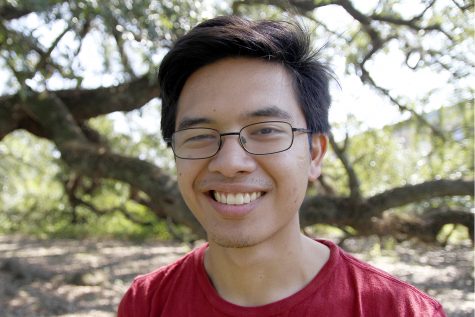
The year has rolled back around to that time when pictures and cutouts of white, floating sheets decorate stores and homes. It’s the prime time when talk of ghosts and other paranormal topics takes center stage. According to a Pew Research Center survey in 2009, 18 percent of adults in the United States reported seeing or being in the presence of a ghost. As interesting as such hypotheticals may seem, insufficient valid evidence supports the existence of ghosts. The absence of information does not mean we have to supplement the gap with a supernatural excuse or a claim of magic. Though many different definitions exist for ghosts, whether they are spirits, angels or pure unbound energy, I will refer to all of them here as ghosts for the sake of space and simplicity.
One argument I have heard claims that anyone who does not believe in ghosts will not see a ghost, that belief must precede sight, and it sounds like a cop out. It is an absolute that does not allow for the existence of ghosts to be disproven. If anyone provides contrary evidence, the believer can just call them closed-minded and, in their own mind, walk proudly away with the crown.
Our model of the world must rely on controlled experiments and statistical analysis. Many times, people cite personal experiences as evidence for the existence of ghosts. Anecdotes, however, must bow to statistical analysis. Even if I saw a ghost and believed wholeheartedly that I did, my own experience is not proper evidence no matter how vivid. Imagination skews observations. Too many variables may cause me to misinterpret the data. Human intuition is powerful, but it is also deeply flawed. Our perceptions are flawed. Our memory is flawed. Even when genuine, human experience is not trustworthy. It is not a base I would trust to support my drink for half a second. Seeing is believing, but confirmation by sound science is believing correctly.
Some people cite conservation of energy to support the existence of ghosts. While this sounds nice and scientific, its proponents misunderstand basic physics. When a person dies, the energy goes into the environment whether in the form of heat or consumed by other organisms. For a conservation of energy argument to work, there would have to exist some “inner soul energy” separate from all other physical phenomena and undetectable. First, where is this energy coming from? Second, if that “inner soul energy” is within each person, and that energy remains in a spectral form after death, shouldn’t it restrict “inner soul energies” forming in the newly born? Where are they getting this “inner soul energy?” What reservoir of this “inner soul energy” does not need to be replenished and thus allows the existence of ghosts but still allows new souls to form? Energy is energy. Shuffling it into a mystical category not convertible into physical energy makes no sense and fits conservation of energy as well as trying to shove a cinder block through a pinhole. By the second law of thermodynamics, the universe tends toward entropy. Consequently, this “inner soul energy” should continue to disperse until it practically no longer exists without that secret reservoir of energy or another unknown force organizing it.
We are a collection of atoms and molecules interacting with each other. Anything more, any soul or ghost, is not supported by evidence. As physicist and professor of particle physics at the University of Manchester Brian Cox said, the Large Hadron Collider, the world’s largest particle collider, should have detected ghosts at this point if such existed. This mystical energy would have to not interact with the smallest particles that we can detect yet still be able to be converted from the energy in those particles. If it cannot be tested, measured or derived mathematically, what basis do we have to claim it exists?
Philosopher Karl Popper distinguished science from pseudoscience by saying that the former is falsifiable and testable. It is easy to mold a theory around new data compared to establishing one that predicts that future data. As such, it must be determined what evidence would irrefutably settle that ghosts do not exist. Rather than search for evidence of a claim, we have to search for evidence that would contradict the claim. If we show up empty handed, we get a pat on the shoulder, then get sent out on another search. Consider, then, what evidence would convince you that ghosts do not exist.
Another popular argument is that science cannot explain everything, and that statement is correct. However, it does not support the existence of ghosts. It means science still has to grow. In the 1600s, we did not know anything about quarks, leptons and antimatter. We still don’t know everything, but we’re learning. Believing that ghosts are the answer is just a short cut that’s easier than searching for the real answer.
I am not saying ghosts cannot exist. I am not even saying that ghosts do not exist. If the evidence changes, I will reconsider my stance. To claim, however, that ghosts exist based on current knowledge neglects logic and science. Our model of the world is imperfect and incomplete, but so far, it is the best we have based on valid evidence.


